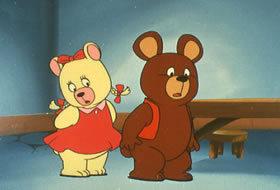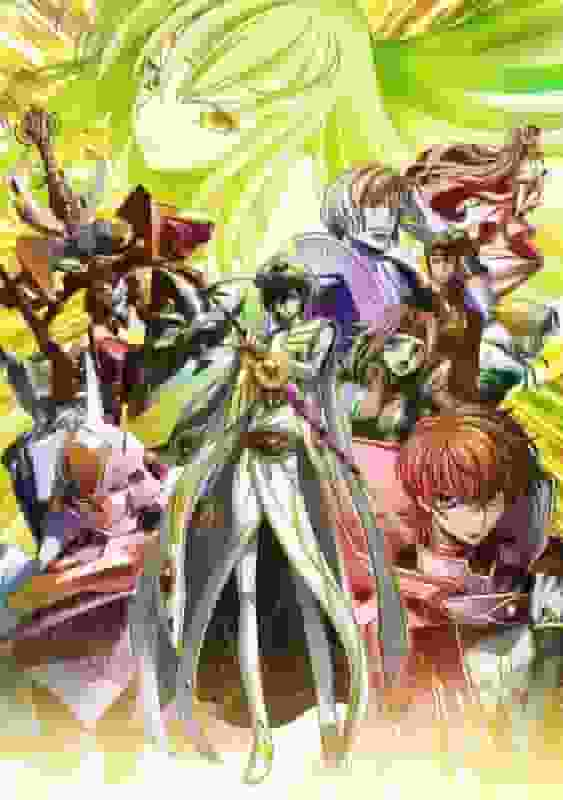Misha the Little Bear: Exploring the Depths of Charming Characters and Stories

Misha the Little Bear - A nostalgic mascot comes to life in this animation"Little Bear Misha," which aired from 1979 to 1980, is an animated work starring Misha, the mascot of the Moscow Olympics. This work was loved by children at the time and was familiar to many people. Here, we will take a closer look at the appeal of "Little Bear Misha," the background to its production, and its subsequent influence. ■Overview of the work"Little Bear Misha" was broadcast on TV Asahi from October 6, 1979 to April 5, 1980, every Saturday from 7:00 to 7:30 p.m. The series is made up of 26 episodes, each 30 minutes long. It was originally written by Nippon Animation and directed by Yoshikata Nitta. It was jointly produced by Nippon Animation and Asahi Broadcasting Corporation, and the copyright belongs to SHINJIDAI・NIPPON ANIMATION 1979. ■ StoryThe story is set in Himadaveya, a small town with a double-digit population. The townspeople are excited when news arrives that a train will be coming to this town, which does not even have a train service, for the first time in three years. The visitors are Misha the baby bear and his family, and the whole town gives them a warm welcome. Misha's father also seems to like the town, but Tiger the blacksmith, who thinks he is the strongest, finds the strong-looking bear an eyesore and plots to evict the family. However, with Misha and his family joining the town, it will grow from a town to a city, so the townspeople decide that the family should stay there permanently. This is the beginning of a warm relationship between Misha and his family and the townspeople. ■Production Background"Little Bear Misha" is a work that centers around Misha, the mascot of the Moscow Olympics held in 1980. At the time in Japan, it was rare for an Olympic mascot to be made into an animation, and this work became a big topic of conversation. In producing it, the aim was to convey to children the Olympic spirit and the importance of international exchange, with the meaning of commemorating the Moscow Olympics. Director Yoshikata Nitta has put a lot of thought into the story and characters to make the film enjoyable for children. In particular, he has succeeded in conveying the importance of family love and friendship by depicting the interactions between Misha's family and the townspeople. In addition, character design by Isamu Kumada has skillfully expressed Misha's cute appearance and the individuality of the other characters. ■Cast and crewThe cast is full of impressive voice actors, including Keiko Yokozawa as Misha, Keiko Han as Natasha, Takashi Tanaka as Dad, and Akiko Tsuboi as Mom. There are also many voice actors who play unique characters, such as Masashi Amemori as Tiger and Kaneta Kimotsuki as Dragon, adding color to the work. The main staff included members who supported Nippon Animation at the time, such as producer Koichi Motohashi, planner Shoji Sato, and composer Shunsuke Kikuchi. The screenplay was written by Shunichi Yukimuro and Yoshiaki Yoshida, storyboards by Yoshikata Nitta and Fumio Ikeno, character design by Isamu Kumada, and animation directors Tomotake Kogawa and Seiji Yamashita, bringing together many talented people. ■ Theme songs and musicThe opening theme "Normalina Misha" and the ending theme "Natasha's Lullaby" were written by Yoko Aki, composed by Ryudo Uzaki, arranged by Motoki Funayama, and sung by Fumiko Sawada. These songs not only enhanced the atmosphere of the work, but also left a deep impression on viewers. ■ Episode introductionThe subtitles and broadcast dates for each episode are as follows:
■The appeal of the workThe greatest charm of "Little Bear Misha" is the heartwarming exchange between Misha's family and the townspeople. The sight of the townspeople coming together to welcome Misha's family and growing together moved viewers. Another highlight is the interaction between Misha's adorable character and the unique townspeople. Furthermore, the film also contains an educational element, aiming to convey to children the Olympic spirit and the importance of international exchange. The episode in which the town becomes lively and attracts many people when the Misha family comes to town symbolizes the significance of international exchange. ■ Influence of the work"Little Bear Misha" had a big impact on children at the time. Misha's cute character was loved by many children, and his goods and toys became popular. In addition, the new attempt to animate an Olympic mascot influenced later animation works. Furthermore, this work was also positioned as part of the cultural exchange between Japan and the Soviet Union and was highly acclaimed from an international perspective. As a work commemorating the Moscow Olympics, it was loved by many people and played a role in widely spreading the Olympic spirit. ■ Responses from viewers"Little Bear Misha" has received a great response from viewers since it was first broadcast. In particular, Misha's cute character and his heartwarming interactions with the townspeople have touched not only children but also adults. Also, the new attempt to turn the Olympic mascot into an animation gave viewers a fresh surprise. The reaction from viewers continued even after the show ended, with many fans continuing to love the show. In particular, Misha goods and toys became popular and were all the rage among children. In addition, the theme of the show, the importance of family love and friendship, resonated with many people, making it a memorable work. ■ Evaluation of the work"Little Bear Misha" was highly praised when it was first broadcast. In particular, Misha's adorable character and his heartwarming interactions with the townspeople touched viewers' hearts. Also, the new attempt to turn the Olympic mascot into an animation gave viewers a fresh surprise. Furthermore, the film also contains an educational element, aiming to convey to children the Olympic spirit and the importance of international exchange. The episode in which the town becomes lively and attracts many people when the Misha family comes to town symbolizes the significance of international exchange. ■Recommending a work"Little Bear Misha" is a work that can be enjoyed by both children and adults. In particular, Misha's adorable character and his heartwarming interactions with the townspeople move viewers. Also, the new attempt to turn the Olympic mascot into an animation gives viewers a fresh surprise. Furthermore, the film also contains an educational element, aiming to convey to children the Olympic spirit and the importance of international exchange. The episode in which the town becomes lively and attracts many people when the Misha family comes to town symbolizes the significance of international exchange. "Little Bear Misha" is a heartwarming story that depicts the importance of family love and friendship. I hope many people will watch it. |
<<: The appeal and reviews of Science Ninja Team Gatchaman F: A complete look at the new adventure
>>: "Autumn Leaves": Reevaluating the moving song of Minna-Uta
Recommend
The 27th Tezuka Osamu Cultural Award was announced, and "Yulia's Red Thread" won the top prize
Today, on April 25, the 27th "Osamu Tezuka C...
Netflix's "Valkyrie of the Last Days II" official trailer 3 released, will be launched on July 12
Netflix released the official trailer for the sec...
The new clip of the movie "Alien: Revenge" released on August 16 was first revealed
In order to promote the film's screening at t...
Trailer for China's first AI-assisted animation "Magic Journey: Artificial Intelligence Assisted"
Today (August 8), Tencent Video released the trai...
"The Creation Design Club" TV animation confirmed! Trailer released
According to new news, the manga "The Creati...
Yellow turban with diamond claws, the first female turtle appears in the Teenage Mutant Ninja Turtles comics
It must be hard for fans to imagine that one day ...
The appeal and reviews of "Albegas, the Lightspeed Electro-God": Why is it a must-see?
Lightspeed Electric God Albegas - The charm and f...
The appeal and reviews of the manga "Wolf is Wolf": Why is it a must-read?
"Wolf is Wolf": A work that marks the d...
The appeal and reviews of "To Heart2 adnext Short Story": A moving short anime experience
ToHeart2 adnext Short Story - Beyond the emotion,...
Review of the movie "Sora no Otoshimono": What is the appeal of the Clockwork Angel?
"Sora no Otoshimono: The Clockwork Goddess&q...
"Deadpool 3" is scheduled to be released on September 6, 2024, and Wolverine will return!
The Marvel movie "Deadpool 3", which ha...
The appeal and reviews of EAT-MAN '98: A thorough analysis of the unique worldview and depth of the story
EAT-MAN '98 - Eat-Man 3998 ■ Public Media TV ...
The trailer for the new spin-off of Kamen Rider Saber will be released on November 20
The second generation of Reiwa Kamen Rider and th...
The movie "Mission Impossible 7" "Desperate Pursuit" trailer will be released on July 14
The movie "Mission: Impossible 7: Deadly Rec...
Mountain Dew Super Bowl ad features White God performing "The Shining"
It seems that the classic horror film "The S...









